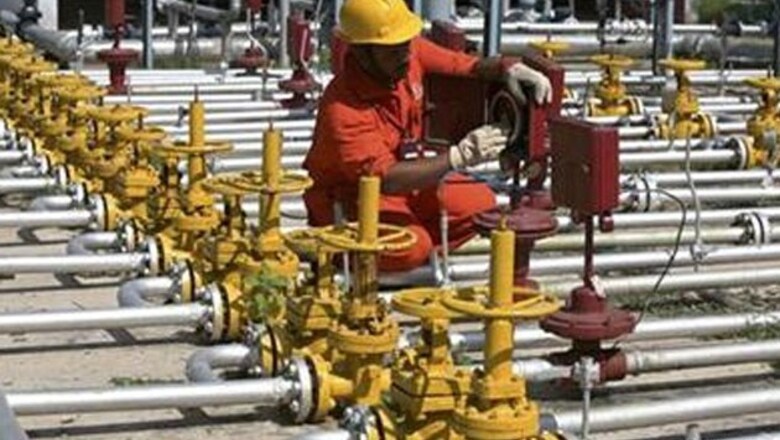
views
New Delhi: Kicking-off work on the long discussed US-backed Turkmenistan-Afghanistan-Pakistan-India gas pipeline, India and its new energy partners on Wednesday signed agreements that would pave way for laying of the 1,680-km line.
Turkmenistan, which holds more than four per cent of the world's natural gas reserves, signed agreements to sell gas to India and Pakistan through the $7.6 billion pipeline at the Caspian Sea resort of Avaza.
Describing signing of the Gas Sales and Purchase Agreement (GSPA) as "no-ordinary event", Oil Minister S Jaipal Reddy said the signing was "a triumph of multilateralism, regional cooperation and economic integration".
The 1,680-km TAPI pipeline will have a capacity to carry 90 million cubic metres a day (mmcmd) gas for a 30-year period and will be operational in 2018.
India and Pakistan would get 38 mmcmd each, while the remaining 14 mcmd will be supplied to Afghanistan.
Besides Reddy, the GSPA, signed by national oil companies of the four nations, was witnessed by Turkmenistan Oil Minister B Nedirov, Pakistan's Petroleum Minister Asim Hussain and Afghanistan's Minister of Mines Wahidullah Shahrani.
"Without a doubt, the economic benefits of the TAPI gas pipeline will be immense for our energy-starved economies. The flow of natural gas will bring in industrial and economic development in our countries," Reddy said.
Stating that in and inter-connected and globalizing world, economics shapes politics, he said: "It is our belief that the TAPI gas pipeline will transform the politics of this region".
"Hopefully, the spin-off benefits of this pipeline will encourage us to emphasise trade and investment issues over contentious political issues and enable us to build trust and confidence among ourselves as neighbours and partners in progress," he said in apparent reference to the frosty ties India has had with its neighbour Pakistan.


















Comments
0 comment